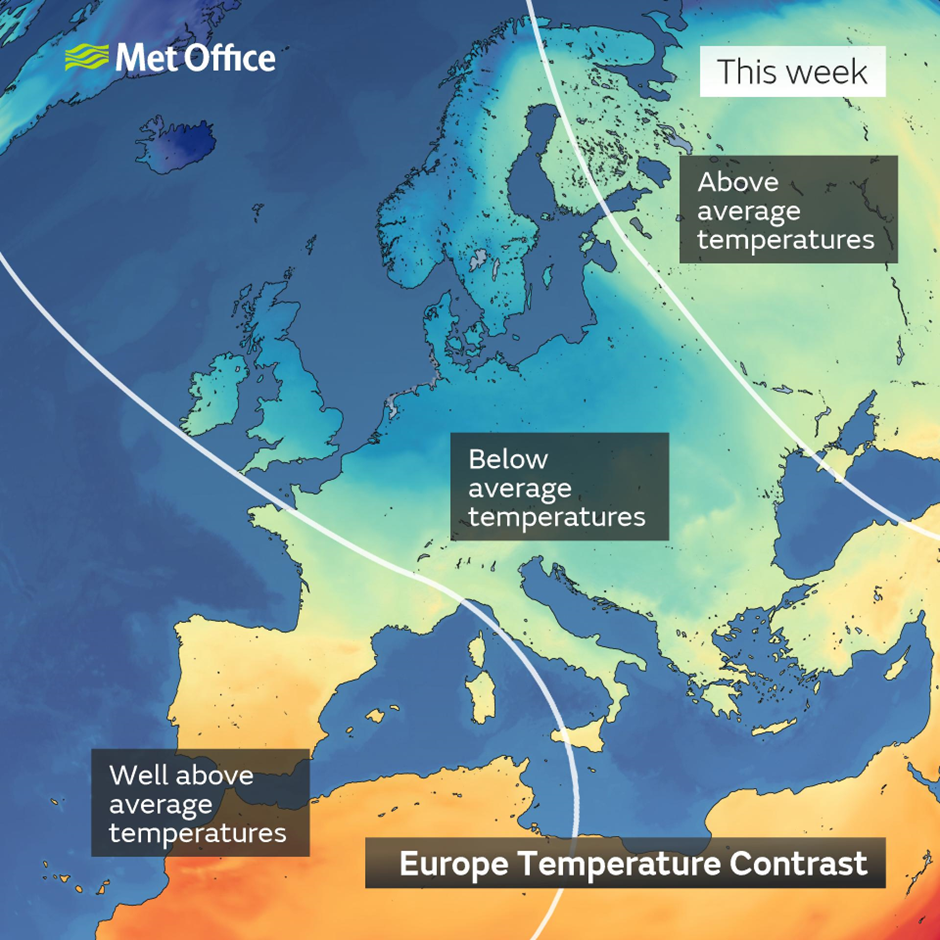From Britain to Gibraltar, this week Europe will witness a large temperature contrast.
In the south of Spain, high temperatures are forecast to approach or even exceed record-breaking levels for April, while in the UK a temperature plunge this week has seen temperatures well below average for the time of year.

Paul Hutcheon is a meteorologist with the Met Office Global Guidance Unit. He said: “By Thursday and Friday there is the potential for record-breaking temperatures in Spain, with inland areas like Córdoba expected to reach 15 degrees above normal with highs of around 40 °C degrees.
“Even coastal areas like Gibraltar could see temperatures 10 °C above average.
“In contrast, parts of northern Britain will have seen overnight temperatures this week around six degrees below average.”
What is driving these contrasts?
In Iberia there are four principal factors to explain the extreme heat:
- Weather patterns across North Africa are pushing heat out of the areas of the western Sahara, like Mali and Mauritania, into Europe
- An area of high pressure already over Iberia is suppressing rainfall while the clear skies allow more of the sun’s radiation to reach the ground
- The high pressure pushing down is warming the air, a little like the air in a bicycle pump
- The relative dry conditions and absence of rainfall is causing temperatures to rise. Soils with a higher moisture content dissipate heat energy through evaporation. In contrast, already dry soils can only absorb more heat
Nick Silkstone is a Deputy Chief Forecaster at the Met Office. He said: “In contrast to the increasingly high temperatures in Spain, the UK’s temperatures have been much colder than average with some locations experiencing overnight frosts. An area of low pressure moving away eastwards away from the UK has allowed cold Arctic air to spread south across the UK.
“Although temperatures will increase in much of Britain by the end of the week, conditions in the far north are still expected to remain colder than average.”
Will it get hotter?
Paul Hutcheon added: “Although we are talking about the potential for record-breaking temperatures for April, of course summer temperatures can be much higher. It is too early to say what these spring extreme temperatures will mean for the values in summer. But the dry ground will mean that further heatwave conditions have the potential to lead to even higher temperatures later in the year.”


